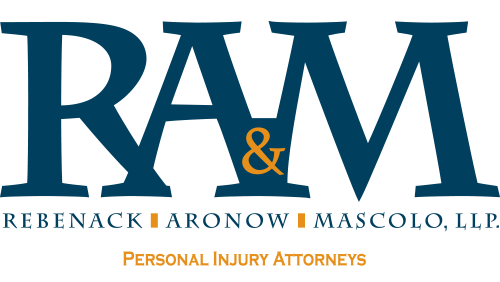Better Enforcement Measures Could Make Roads Safer From Truck Accidents
Recently, Delaware added an enforcement measure that allows some large trucks to be ticketed with the use of cameras on restricted roads; this comes just after federal regulators suggested relaxing daily driving limits for truckers, and many safety organizations are looking for ways to offset the potential dangers of that scenario. Since the number of fatalities associated with trucking accidents increased by 10% in 2017, the safety measure is a welcome change to motorists, area residents, and traffic safety organizations. If the new measure helps Delaware reduce truck accident rates, more states may consider adding similar trucking law enforcement measures.
What Is Behind the Push for Enforcement?
The Delaware Department of Transportation said that it could put up as many signs as it wanted around the state to warn truck drivers about existing restrictions on roads. However, the issue of drivers ignoring the signs and taking illegal shortcuts was becoming problematic. A local news station interviewed a man who lived in the area near the port of Wilmington. Since the port handles more than 2 million tons of container cargo each year, it is a popular spot for trucks to travel to and from. The resident said that there were signs posted to alert drivers that the residential road was limited to local trips for vehicles with more than two axles. He shared his frustration of drivers ignoring the signs constantly.
Safety organizations, motorists, and people who live in areas where trucks take illegal shortcuts share the concerns of the resident in that interview. Roads that prohibit or limit large truck traffic have those restrictions for reasons. In many cases, conditions along the way make it unsafe for trucks. There may be too many pedestrians, narrow roads, soft shoulders, or other issues. In some areas, roads that are restricted may see frequent and strong wind gusts that can cause semitrailers to sway or tip over.
Since cargo is transported through New Jersey’s highways, this problem is becoming more common in the state. In 2016, a semi that was traveling on the George Washington Bridge during a weather-related truck ban flipped over in the wind. There was a diesel spill as well, and traffic was stopped for more than 30 minutes. In many New Jersey and New York areas, there are restrictions for large trucks on certain roads. In New York, the problem of trucks ignoring temporary or long-term bans on certain roads was big enough that Governor Andrew Cuomo moved to ban large trucks from the thruway and other major highways in early 2019. If the new enforcement plan that Delaware is carrying out works well, it may inspire New Jersey and surrounding states that have the same problem to develop stricter enforcement measures. When drivers are caught on camera driving on roads that they are banned from using, they will be fined and receive a citation.
What Could This Mean for Motorists and Residential Areas?

The proposed recent changes to the federal hours-of-service laws involve the on-duty frame and breaks. Currently, the law says that truckers can drive for 11 hours within a 14-hour stretch. They must rest for 10 hours before driving on the clock again. Also, they must take a 30-minute break before they reach eight hours of driving time. The new regulations would turn the maximum stretch into 14 hours, and there would be an allowance of three hours to pause the electronic logging device in the vehicle. With an extended time frame for drivers to operate without a long break, the risk of drowsy driving increases. If drowsy drivers are taking illegal shortcuts, there is an added element of danger for some residential areas and motorists.
In areas where this problem is common, camera ticketing and enforcement would discourage drivers from using prohibited roads. When they know that there is a minimal risk of getting caught and pulled over by a law enforcement officer, they are more likely to illegally drive on a prohibited road. However, they are less likely to do so if they will surely get a ticket from an automated detection and enforcement system. For motorists, this would reduce some risks on the roadways where trucks are temporarily or permanently banned. For residential dwellers, it would mean less risk of semis speeding through and less noise.
How to Improve Safety
Although people in some residential areas may be annoyed with truck drivers, they may not know the dangers that the drivers bring or if they can drive there legally. If you live in such an area, one way to help reduce this problem is to report trucks that take illegal shortcuts. Some trucks have company phone numbers and identification numbers printed on them. You can also take photos of offending trucks to report to a company or to the police. If the problems persist and are documented, a city or a state may be more likely to enact better enforcement measures.
Truck drivers can also help reduce this problem by simply avoiding illegal shortcuts. In some cases, truck drivers accidentally take these roads. One way to prevent accidentally breaking a ban is to plan a trip in advance. For a real-life example, an independent truck driver who was passing through a township in Pennsylvania received a $17,751 ticket for driving a truck that exceeded the road’s weight limit. Since he was not familiar with the area and did not plan his trip well, getting lost in that suburban area turned out to be a costly mistake.
What to Do When Semi Accidents Happen
If the problems of illegal shortcuts and driving on banned roads persist, camera ticketing and enforcement could be in the near future for more states. Even with the best preventative measures, semi accidents can happen in New Jersey when drivers take illegal shortcuts, fall asleep on the road, or drive carelessly. Also, trucking accidents can happen when there is snow, ice, rain, or wind. If you sustain trucking accident injuries, you may be entitled to compensation. If the driver of the truck caused the accident, that individual or the company that employs the person may have to pay for damages.
Some people sustain long-term injuries or become paralyzed. New Jersey is a no-fault state for vehicle accidents. This means that you must usually contact your own insurance company first. If your accident details meet certain criteria, you may be able to seek additional compensation for damages. This is why it is important to have an attorney who understands insurance and accident laws. A good lawyer also understands how to help you get a fair amount for an award.
At RAM Law, we encourage you to talk to an attorney before you accept any type of payout. If you or someone in your family was injured in a truck accident, know that our attorneys understand New Jersey trucking law and can help you. If you are near New Brunswick, please contact us today for a free and confidential consultation by calling (732) 247-3600 or emailing contact@ram.law. You can reach our Somerville location by calling (908) 448-2560.


